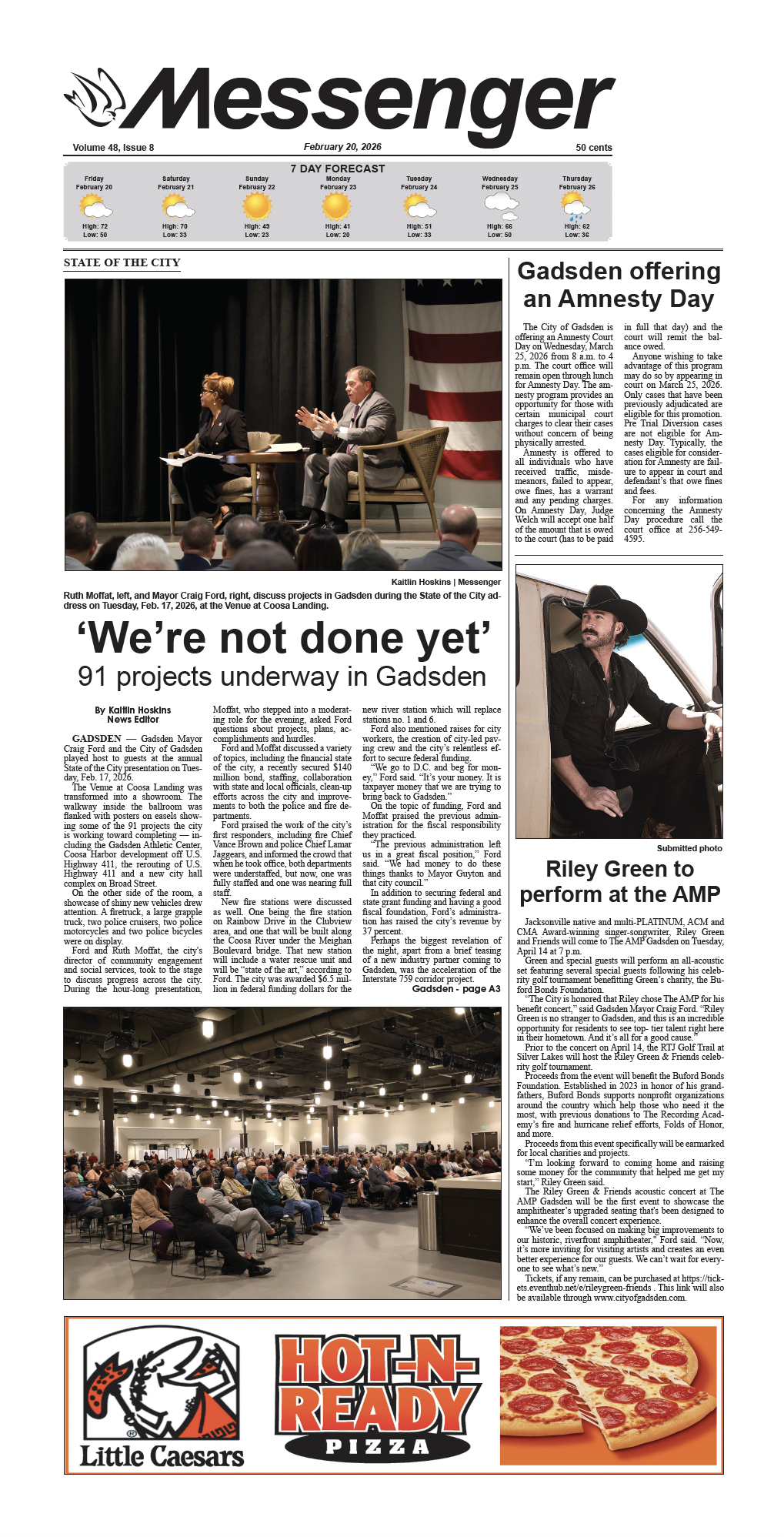By Danny Crownover
Jacob C. Lutes was born on Feb. 19, 1836 in Lafayette, Ga. He was the son of George Lutes (born 1793) and Mary Steele.
Lutes later moved with his father to Cherokee Count just prior to 1850, where the younger Lutes met his first cousin, Sarah Elizabeth Steele, the daughter of Toliver Steele and Suzannah Lutes. The town of Steele was named for Toliver Steele.
Jacob married Sarah on Jan. 12, 1860, and they settled on Chandler Mountain near Gallant, just a few miles from Steele. Jacob purchased 186 acres of land and had started clearing the land for farming when the Civil War started. Jacob enlisted in the Confederate Army in 1862 and served until the end of the war in 1865.
During his tour of duty, Jacob saw action at the battles of Murfreesboro, Chickamauga, Missionary Ridge and Atlanta. He entered the Confederate Army from Ashville and was assigned to Company E, 19th Alabama Regiment until the fall of 1864. After Jacob’s enlistment ended, he re-enlisted a month later in the John Hatone command.
Jacob began working and building as soon as he arrived home from the war. He built a gristmill, blacksmith shop and coffin factory. His chief crops were tobacco and corn He later built a saw mill and produced most of the lumber for his community.
Jacob became financially successful over the years and began lending money to other farmers to finance their crops. He kept large sums of money in his house due to the poor performance of banks during that era. Most banks in this area and other areas of the south had a life expectancy of one to two years, mostly opened by scalawags and northern investors. Lutes was one of the wealthiest men in this section, and his main business was loaning money. He kept no bank account, however.
Jacob contributed the land for the First Baptist Church of Attala and was a devoted member of that church. Jacob lost his wife Sarah in 1887. She is buried in the Steele Cemetery. He was re-married in 1898 to Marcilla Phillips, a widow from Cherokee County. The couple had one child in 1899 and named her Pricilla.
Jacob’s son Montrose brought his three children to live with Jacob and Marcilla until he could make better arrangements. Montrose’s wife Daisy had died while giving birth to his son Leroy in September of that year in Memphis, Tenn.
Stories handed down over the years indicate that Jacob and his wife were abusive to the grandchildren.
Montrose’s mother-in-law, Henrietta Lovett, came to Steele from Georgia on a train and took Leroy and his two sisters back to Georgia with her. Leroy was sick with dysentery, and it took several weeks of care to nurse him back to health.
The Lutes had a daughter that was away at school in Atlanta, which turned out to be a blessing that may have saved her life.
On Friday morning, Nov. 10, 1911, some neighbors, failing to find the old couple about the house, held a boy up to the Lute’s window. He saw the old man and woman lying on the floor covered in blood. Their heads had been split open with an axe.
The community was thrown into a state of wild excitement. Several hundred men, many armed, immediately arrived at the scene of the crime. Empty pocket books were found in the death chamber, and the rooms were in great disorder. Keys were also missing.
Four chairs were drawn up in front of the fireplace, indicating that at least two men had been admitted into the home and sat before the fireplace before making the attack.
The fireplace showed evidence of rain that fell on the previous Wednesday; therefore, the deed could not have been committed later than Tuesday night. The calendar clock had stopped at 6:15 and the calendar hand pointed to Monday, Nov. 6. It was thought that the Lutes would not allow their clock to go unwound, for even a day. The section of Etowah County that the Lutes lived in was isolated and sparsely settled, so no outcries would have been heard by neighbors.
On Feb. 2, 1912, brothers Cleve and Will Campbell, along with D.S. McLain, were arrested and carried to Birmingham for safe keeping. They later were brought to the home place to tell where the hatchet and keys were located.
Jacob’s daughter Mary hired a private detective who worked for $25 a day plus expenses. He found enough evidence to convict the Campbell brothers. The ax that was used as the murder weapon was found in nearby Canoe Creek.
Although Cleve Camp-bell was convicted of the murders, he later was released when Doc McLe-more confessed to the murder on his deathbed. The Campbell brothers were paid compensation for their time spent in prison.
Jacob was buried in the Steele Cemetery next to his first wife, Sarah.




